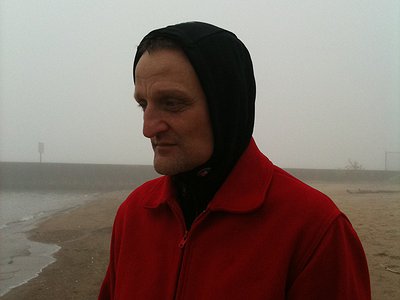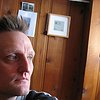When did you start writing/producing music - and what or who were your early passions and influences?
I took piano lessons early, but didn't really start with music until I was 18 or 19. I wanted to play rockabilly first. In high school I listened to lots of oldies radio and early rock and roll, Sun Records, Buddy Holly, Gene Vincent were probably the first types of music I loved, independent of the influence from my family. Those oldies led to my discovery of the roots music scene in the eighties, from Slash Records, Rounder and beyond.
What do you personally consider to be the incisive moments in your artistic work and/or career?
Soon after starting with the electric guitar, a friend gave me a cassette of Bill Frisell's Inline album. There was always jazz in my house but this was very different. His use of the volume pedal and reverb changed the instrument for me and that's still the path I'm on.
What are currently your main compositional- and production-challenges?
As far as composition, navigating between the overt and the subtle is always my challenge. I think I have a tendency to understate to a fault.
Respecting and understanding that a listener may want a clearer narrative or reflection of influence is something I think about...
What do you usually start with when working on a new piece?
It depends, usually I need two elements interacting to get something off the ground. This can be melody and bass line or two textures that work together well, often a short section of rtm and texture coexisting is the point where it moves beyond a doodle into something that can be developed further.
How strictly do you separate improvising and composing?
When Steven Hess and I get together there is no separation, that's pretty much how we write. When I 'm working alone it's all a very slow motion improvisation with lots of erasing and starting again.
In a live setting though, there is not any improvisation in the traditional sense.
How do you see the relationship between sound, space and composition?
All the same really. There's a great quote from Morton Feldman, "Instrumentation is composition" and that's how I see it as well. Once there is a sound, composition has begun. Space is presentation or arrangement, so instrumentation plus arrangement is music.
Do you feel it important that an audience is able to deduct the processes and ideas behind a work purely on the basis of the music? If so, how do you make them transparent?
I guess that's a problem I've had with more experimental music. For me, if you have to know anything about the music to understand it before listening, it's failed. In the electronic work there is certainly lots or process-driven music. Some of it I like and sometimes I even like reading about the process. but as much of a cliché as it is, I prefer music as the universal language. Tastes or sensitivity might develop, but there shouldn't be a back story or explanation needed.



